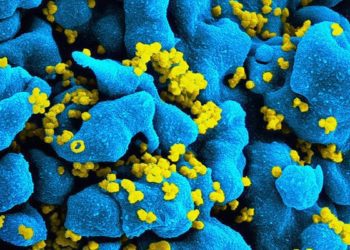Periprocedural anticoagulation: Heparin bridging therapy associated with increased risk of bleeding
Image: CC
Key study points:
Primer: Managing periprocedural anticoagulation in patients on long-term warfarin is a common clinical problem. If anticoagulation is interrupted before an invasive procedure, patients bear an increased risk of thromboembolic events. If anticoagulation is continued, patients risk the possibility of bleeding events. Thus the risk of periprocedural bleeding must be weighed against the risk of thrombosis. While validated risk stratification scores (HAS-BLED) exist for this purpose in conditions like atrial fibrillation, the management of anticoagulation before interventional procedures remains controversially empirical. The widely employed empiric approach involves discontinuing warfarin but continuing anticoagulation with a heparin bridge, the rationale being replacement of a long-acting agent with one that is short-acting and easily reversible means anticoagulation can be stopped soon before and resumed soon after a procedure. Although the strategy is appealingly elegant, it has yet to be backed by sound evidence.
This [systematic review and meta-analysis] by Siegal et al comprises 34 studies (including 1 randomized trial) of periprocedural bridging with low-molecular-weight-heparin (LMWH), representing altogether > 12,000 patients. The authors established a baseline risk of periprocedural bleeding and thromboembolism using control groups comprising warfarin users with low-thromboembolic risk who remained unbridged or patients not on warfarin.
Using standard meta-analysis methods, bridging therapy was found to be associated with a >5x increased risk of overall bleeds (odds ratio, 5.40; 95% CI, 3.00–9.74) and >3x increased risk of major bleeds (odds ratio, 3.60; 95% CI, 1.52–8.50). Bridged and non-bridged patients had similar rates of thromboembolic events (odds ratio, 0.80; 95% CI, 0.42–1.54).
A comparison of therapeutic vs. prophylactic/intermediate doses of LMWH revealed an increased risk of overall bleeds with the therapeutic dose. In studies with subgroup analyses based on procedural risk, bleeding rates were highest in bridged patients undergoing procedures with a high-bleeding risk.
In sum: These results call into question the widely prevalent practice of periprocedural bridging of warfarin with LMWH. The authors conclude that long-term warfarin users should avoid the customary periprocedural LMWH bridge, especially one at a therapeutic dose, especially if they have a less-than-high thromboembolic risk and especially if they are undergoing a high-bleeding-risk procedure.
This study represents the largest collection of data on periprocedural management of warfarin patients with heparin. Besides the limitations intrinsic to meta-analyses, one limitation of this study is the heterogeneity of data mirroring variations in clinical practice. For example, these studies coalesce multiple bridging regimes with varying doses and multiple procedures with varying bleeding risk. Moreover, the definitions of bleeding events and thromboembolic events vary among studies. Last, the indications for anticoagulation and definitions of high-risk for bleeding / thromboembolism vary among studies, so it remains unclear how the baseline risk of events affects the actual outcomes.
Ongoing randomized trials (PERIOP-2, BRIDGE, and BRUISECONTROL) may address these limitations, but until then, this study remains the best summary of existing evidence on periprocedural bridging therapy.
Click to read the study in Circulation
More background reading:
Written by MP
© 2012 2minutemedicine.com. All rights reserved. No works may be reproduced without written consent from 2minutemedicine.com. DISCLAIMER: Posts are not medical advice and are not intended as such. Please see a healthcare professional if you seek medical advice.




